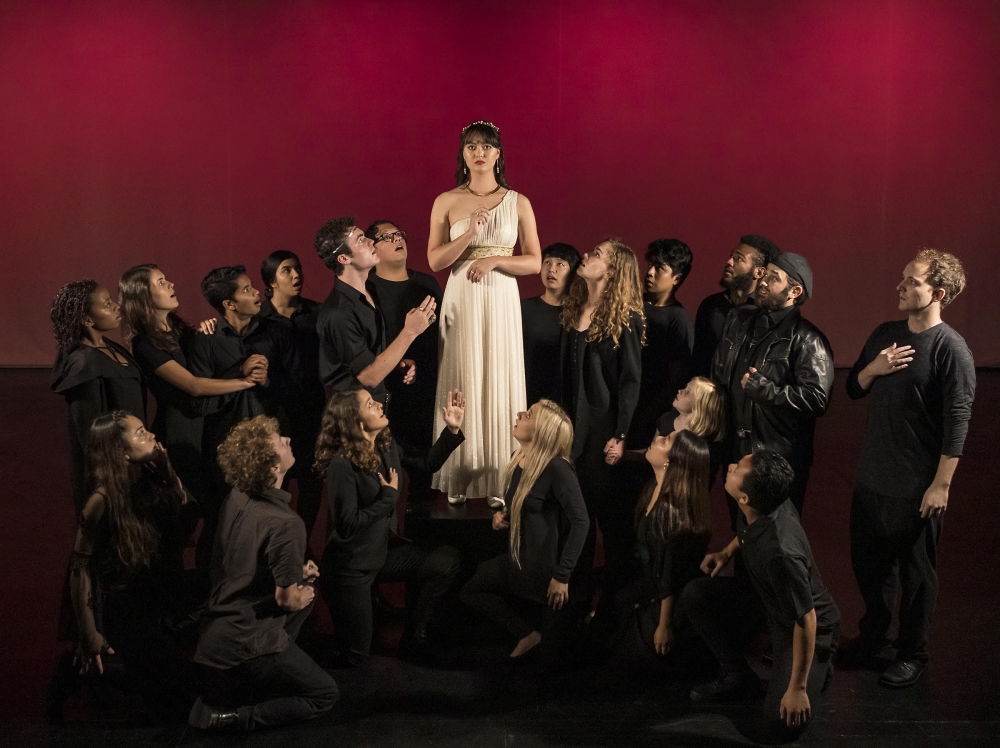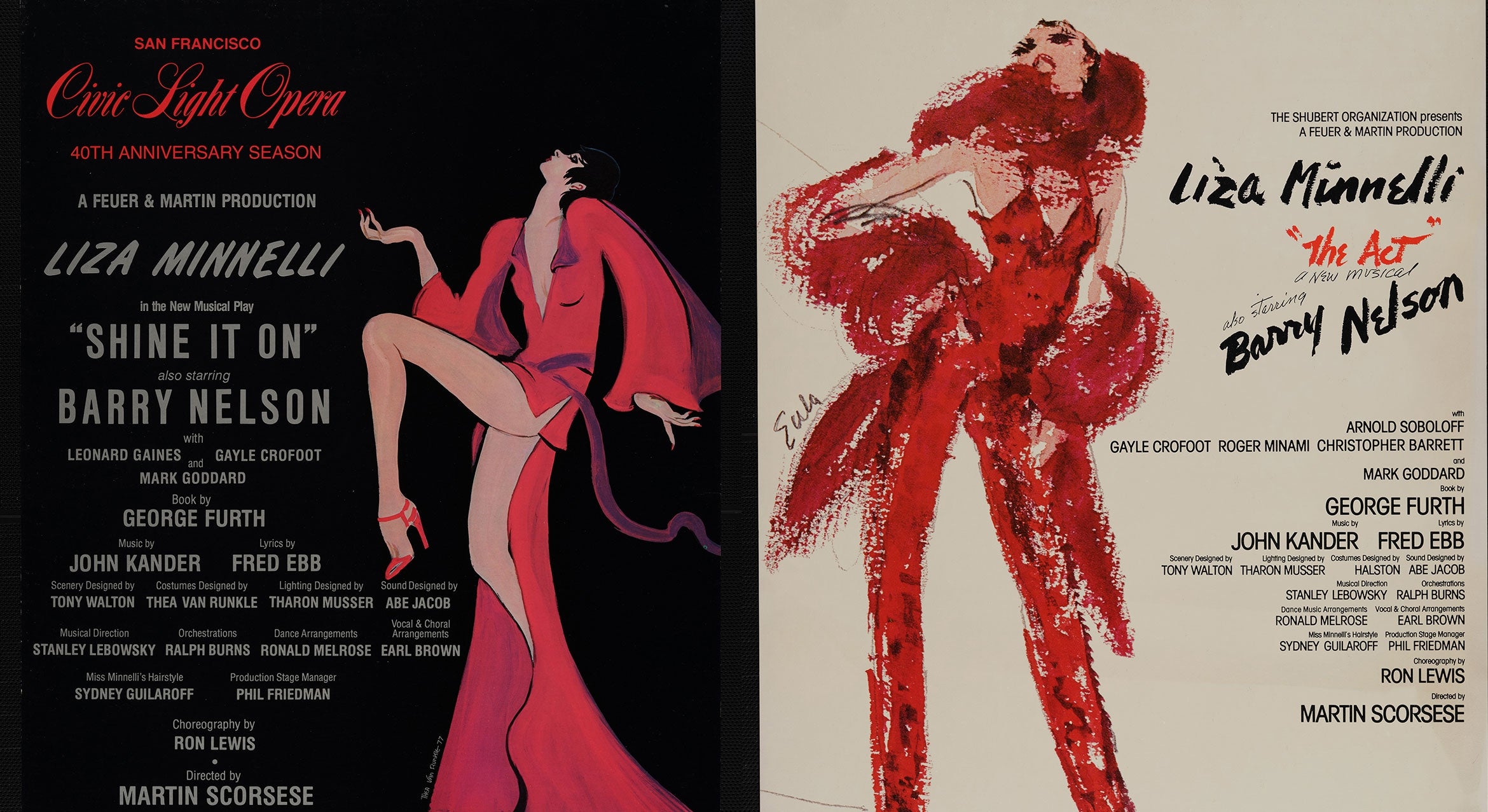
Shakespeare for the #MeToo Era

One of the most striking things about the plays of William Shakespeare is the fact they often feel uncannily relevant. It’s always easy to liken a prominent politician or celebrity to Hamlet or Lear, or to realize a high-profile dispute is revisiting the clash between justice and mercy he dramatized so often.
“The Winter’s Tale” wouldn’t initially seem to fit this pattern. It is, after all, a fairy tale of sorts, a fantastical story of rage, penance and absolution that follows a sort of dream logic.
But director Irwin Appel and the cast of his Naked Shakes production, which opens Thursday night in the campus’s Hatlen Theatre, have discovered the work has surprising contemporary resonance.
“It’s going to be very interesting to bring this play into the era of #metoo,” said Appel, who chairs the Department of Theatre and Dance and serves as director of the BFA acting training program. “How do audiences feel about the issues of forgiveness and redemption in 2019? I suspect that will be an unsettling conversation — which is a good thing.”
Like so many stories in today’s news, “The Winter’s Tale” revolves around accusations of sexual impropriety, and a woman who finds she is not listened to or taken seriously. Moreover, it’s a tale of a powerful and intimidating ruler who rages irrationally and stubbornly refuses to look at actual facts — behavior that inevitably leads to disaster.
“We’ve been calling her the Secretary of State,” actress Sierra Hastings said of her character, Paulina. She’s a loyal aide to Leontes, king of Sicilia, who nevertheless confronts him angrily when he refuses to give up the unfounded notion that his queen, Hermione, has been cheating on him.
“Everyone tries to convince Leontes he’s wrong, and then stand up for what they believe is true — especially Paulina,” said Kat Cleave, who is playing Hermione. “Similar to the issues women and others face today, there are people standing up against inhumane actions and fighting for justice.”
Cleave calls “The Winter’s Tale” “serious, comical and, dare I say, magical, in the best way possible.” Its structure is unique among Shakespeare’s plays. The first three acts are a clear-eyed examination of unchecked jealousy. Once they play out to their tragic conclusion, the character of Time emerges to announce that 16 years have passed. The play then shifts abruptly into a pastoral comedy before ultimately reaching a realm of spiritual transcendence, where repentance and forgiveness can seemingly conquer death itself.
“I think that, at the end of his career, Shakespeare very much wanted to break out of forms,” Appel said. “I noticed that, in this play, the verse is extremely syncopated and irregular. I think he was expanding the form, and experimenting with audiences’ notions of what comedy and tragedy are.”
As usual with Naked Shakes, which has presented stripped-down Shakespeare annually since 2006, the staging relies heavily on the actors. Sets are minimal to nonexistent, and the cast members are creating their own costumes.
“I’ve done Shakespeare in gorgeous period costumes, which is nice in its own way,” said Hastings. “But to have something that I have put together from my own clothing — some of it begged or borrowed from friends — lends a different feeling. This coat (I’m wearing onstage) is both Paulina’s coat and Sierra’s coat. I can slip in and out of both of our memories.”
“I really appreciate the Naked Shakes aesthetic,” said Cooper von Bruhns, who is playing Leontes. He, like Hastings and Cleave, is a fourth-year BFA acting student. “It pushes us — the actors and the audience — to rely on our imagination, and let our creativity take the reins. The language of Shakespeare is already so telling of where a character’s heartbeat is, and the vowels and consonants push our every undertone of pain, or fury, or resounding joy.”
“The Winter’s Tale” kicks off a season that has been programmed with the coming election in mind. Full of contemporary works that address pressing social issues (as well as a classic comedy about hypocrisy, Moliere’s “Tartuffe”), Appel calls it “a concerted attempt to engage in the moment — in the conversations we are now having in this country, and the world.”
The Shakespeare play was chosen separately from those considerations, but it has proven to be a fine fit. “I have an actor friend who says ‘The Winter’s Tale’ is about complicity,” Irwin noted — another way it correlates to today’s sociopolitical scene, in which “enabler” has become a frequently used and frightening term.
“I definitely see parallels to this country, where we let a lot of men have unparalleled power,” Hastings said. “What happens to a country when you don’t listen to its women?”
“The Winter’s Tale” will be performed at 7:30 p.m. Thursday and Friday, Sept. 5 and 6, and at 2 and 7:30 p.m. Saturday, Sept. 7, in the Hatlen Theatre. Admission is free. It will be revived from Oct. 18-20; tickets for those performances are $12 to $18. Additional information is available at (805) 893-2064 or at theaterdance.ucsb.edu.



